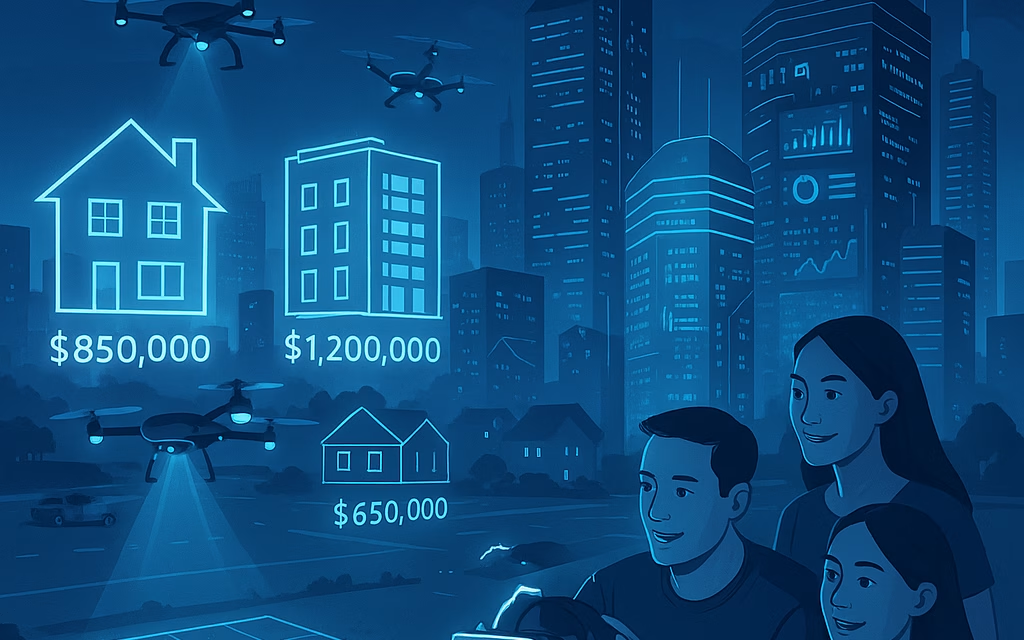July 14, 2025 – The real estate industry is in the midst of a technological revolution, with Artificial Intelligence reshaping every aspect of the property market. Today’s market analysis reveals the AI in real estate sector is set for explosive growth, projected to hit $303.06 billion in 2025 alone, with a compound annual growth rate (CAGR) of 36.1%.
The Smart Home Revolution and Gen-Z’s Demands
A primary driver of this growth is the consumer-led demand for smart homes. A recent study highlights a major shift in priorities, revealing that 62% of Gen-Z renters now consider smart-home technology more important than traditional amenities like gyms and parking. This is forcing the Proptech industry to innovate rapidly, integrating AI into everything from automated security and energy optimization to intelligent personal assistants within residential units.
AI-Powered Tools Empowering Buyers and Agents
AI is empowering both homebuyers and real estate professionals with a new generation of intelligent tools. Consumer adoption is accelerating, with a new survey showing that 37% of homebuyers are now using AI tools to estimate monthly payments and check property values. On the business side, the trend is just as strong, with over 85% of real estate firms planning to increase their AI investments within the next three years. These tools are automating everything from property valuations and predictive maintenance to tenant-facing chatbots for 24/7 service.
The Impact on Commercial Real Estate: The Rise of Data Centers
The AI boom is also creating new demand in commercial real estate. The proliferation of AI has led to a global surge in demand for specialized properties, particularly data centers required to house the powerful servers that run AI models. This creates a new, lucrative sub-market for commercial developers and investors focused on the infrastructure that powers the AI revolution itself.
The Future of Real Estate is Intelligent
The developments of July 14, 2025, paint a clear picture of the future of real estate. Fueled by billions in investment and clear consumer demand, the integration of AI is no longer a trend but a fundamental market shift creating a more efficient, transparent, and personalized property ecosystem.
]]>
